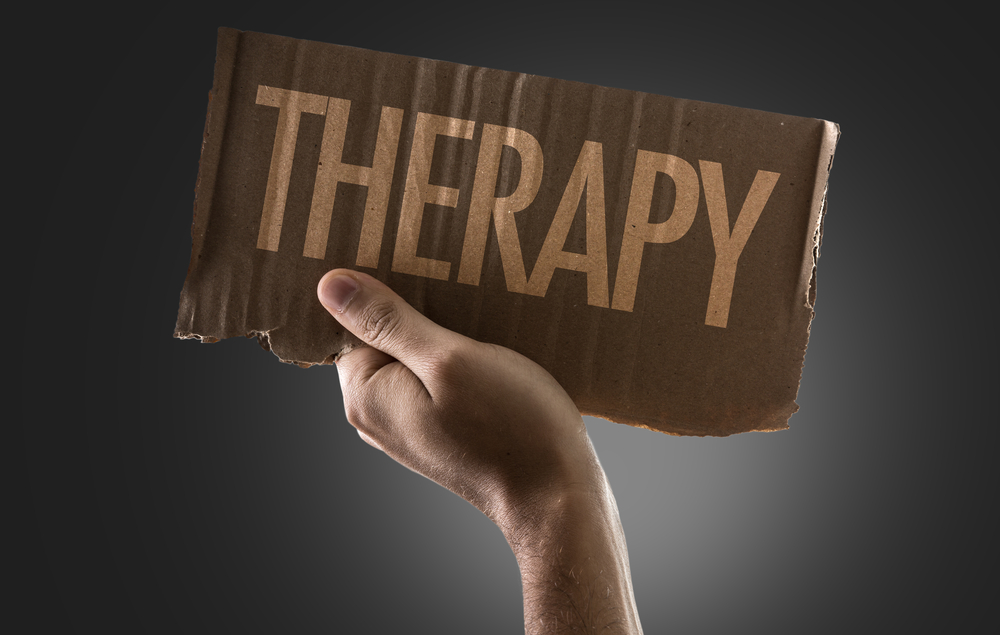Edaravone, Now Known as Radicava, Has Been ‘Minor Miracle’ for Some, ALS Worldwide Co-director Says

Edaravone — now more widely known by its U.S. brand name, Radicava — has produced “a minor miracle” for some amyotrophic lateral sclerosis patients, said Stephen Byer, co-director of ALS Worldwide.
“We have found and continue to find great benefit in terms of slowing, stopping and, in some cases, even helping to mildly reverse some symptoms of the disease,” Byer said in a telephone interview with ALS News Today.
“How profound is it? Well, I have not seen anyone take up square dancing,” he added. “But if they’re simply getting around a bit easier than they did pre-edaravone, if they’re going out more,” then the treatment is helping.
An ability to move around better does not mean a person is necessarily improving, but perhaps “not further progressing,” he said. “And that’s a minor miracle.”
The infusion treatment, expected to hit the U.S market in August, became the first ALS therapy in 22 years to receive U.S. Food and Drug Administration approval, in May of this year.
The nonprofit ALS Worldwide started helping patients obtain access to edaravone in June 2016, however, with the pace picking up in August 2016.
At the moment, Byer said, ALS Worldwide is helping “several dozen” patients, mostly in the United States and Europe but on almost all continents, obtain access to the edaravone it imports. Patients are almost always referred by their doctors. Whether the organization helps a patient depends on the person’s condition and the group’s resources.
“We are not trying to be a counterculture in any way, which is why we insist on patients clearly involving their own neurologist, or primary care physician, or both,” Byer said.”But once that’s in place, we step in with what I suppose is an active, aggressive means of obtaining medication.”
Clinical trial inadequacies
ALS Worldwide’s involvement with edaravone reflects the group’s mission of service to patients and its contention that the preclinical-to-clinical testing process for ALS therapies is a “broken system.” The organization has also helped people obtain treatments for conditions like malnutrition and PBA, or uncontrolled fits of laughter or crying. The scientific term for PBA is pseudobulbar affect.
The mice that researchers use in preclinical-trial testing of ALS therapies are poor models of the disease and of potential treatments in humans, Byer said, calling both the SOD-1 and newer TDP-43 mouse models “mediocre at best.”
It’s a situation where “there’s nothing short of human trials for ALS that starts to really tell any kind of a story,” he said. But many who have the progressive disease are excluded from clinical trials, he noted, with researchers telling them “you’ve already passed the parameters necessary to enroll in that trial.”
Meanwhile, those who get enrolled are as likely to receive a lower treatment dose or a placebo than a full therapy dose — and “for people who are rapidly diminishing, that is not a bright opportunity.”
In a community as active as ALS, it’s hardly surprising a number of patients “look for other options,” Byer said.
“I know this sounds very activist,” but given the severity of ALS and the scarcity of therapies available, his organization feels “strongly about early access.” That is why it is working to deliver “promising drugs that strongly suggest an absence of harm, whenever and wherever possible.”
ALS Worldwide added edaravone to the list of treatments it supplies because of its long history of human use and its good safety record. Japan approved it for ischemic stroke in 2001 and for ALS in 2015.
Prospective patients and their doctors, including neurologists, go through a series of interviews before the organization assigns a prescription and places an import order. Blood test results are required and “carefully reviewed.” And specialists on both ends — the patients’ and those at ALS Worldwide — follow a person’s progress.
Attitude is key
In the roughly 13 months that the organization has been supplying edaravone to select patients, it has formed some conclusions about it.
One of the strongest observations is that edaravone offers no “dramatic reversal” in disease symptoms, but can offer “a fairly reasonable, modulated stability that didn’t previously exist,” Byer said.
In a pivotal clinical trial in Japan (NCT01492686), edaravone led to a 33 percent improvement in the rate of patients’ decline in physical function, and a 58 percent reduction in the risk of “certain disease progression events,” like the inability to use a limb. Those results were detailed in an earlier interview with an executive of MT Pharma America, a subsidiary of Radicava’s developer, Japan’s Mitsubishi Tanabe Pharma.
Like many treatments, edaravone works best in those most open to its help, Byer said.
“We’re firmly of the belief that ALS, like most conditions or diseases, is a mind-body-spirit experience. How much benefit does edaravone have? The absolute truth, as I think we know it, it has more benefit for those who want more benefit.” He was referring in particular to people who “enter in to it with an understanding or even just a hope that — while it’s not the Holy Grail — at least it might be something close to that.”
Some of the patients who have received edaravone through ALS Worldwide have complained of regressing during off-treatment days. Byer thinks the current regimen of 28-day treatment cycles — 14 infusion days followed by 14 drug-free days — may not be optimal.
“Our experience is, and every edaravone patients says the same thing after several months of usage: ‘I am so much better, I feel so much stronger on the days that I’m on edaravone, and, boy, I revert back to pre-edaravone on the days I’m off edaravone.'”
As a result, the organization is allowing some patients to try different treatment schedules. Blood test results are showing reduced liver and kidney enzymes with the treatment’s continued use, he said.
FDA broadly favors infusion therapy
Because it’s an IV formulation, endaravone can require a central venous catheter, like a PICC line or port, for long-term treatment. Neither is exactly agreeable, Byer said, although generally superior to a standard IV catheter.
Patients in the ALS Worldwide network typically receive their initial two to three infusions at a clinic or infusion center, where a caregiver is trained to continue the therapy at home, perhaps under supervision. “It’s not hard to do,” Byer said, “but someone does need to be properly trained.”
In the pivotal clinical study in Japan, doctors gave edaravone only to early-stage ALS patients. The group had had the disease less than two years, were able to breathe unassisted and were relatively independent.
This raises the question of whether the treatment is of greatest benefit to this patient group. Perhaps thinking so, one U.S. insurer — United Healthcare — has restricted its Radicava coverage to patients with fairly high levels of lung function capacity. One measure it uses is a forced vital capacity score of 80 percent of normal or better.
But the FDA placed no such restrictions on its approval, a point Byer agrees with.
“I think [the FDA’s] statements on edaravone were chosen wisely and delivered appropriately,” he said. “We feel very strongly that to limit a bona fide protocol to those who fall into a very narrow range … is totally inappropriate.”
Likely costs, future hopes
Radicava’s nearly $1,100 per dose list price raises concerns, as do the prices of many newer drugs for even rarer diseases.
ALS Worldwide, like most patient groups, finds the price high but has been muted in its criticism, preferring to work with pharmaceutical companies to seek the best deal possible for patients.
“Is $1,081 per injection too high? Of course it’s too high,” Byer said. “But on the other hand, I didn’t put out half a million dollars, or $4 billion, or whatever, that Mitsubishi Tanaba did to do all the research they’ve been doing for 20 years” to develop Radicava. “So, who’s to say what’s right for them?”
He declined to say what ALS Worldwide pays for the edaravone it imports from pharmacies abroad, other than to note it’s considerably lower than the U.S. list price. He added that he does not expect difficulty importing edaravone once Radicava arrives on the American market.
But, he stressed, ALS Worldwide’s goal is to work for Radicava to be widely accessible and affordable, so that demand for edaravone runs dry.
“It’s our hope that the branded Radicava situation will be ironed out so clearly and so beneficially to the patient community that we have no need to play a role in it,” he said. But as of now, “I can’t tell if that will be the circumstance.”






